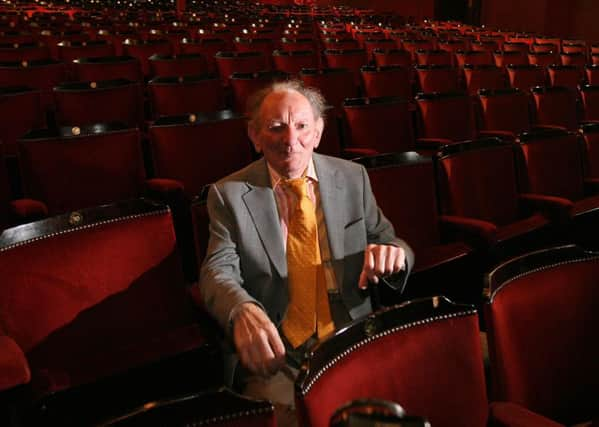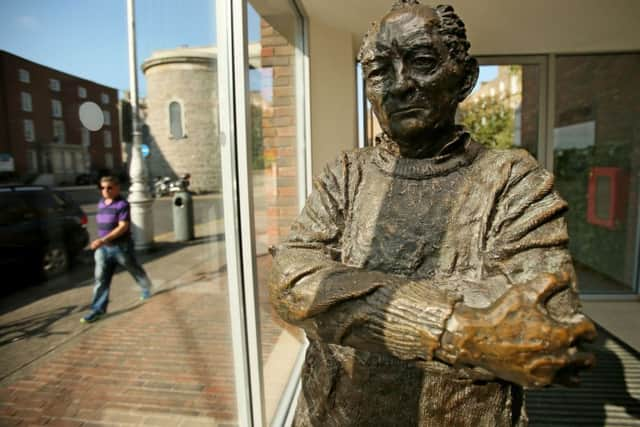Stars line up to praise Irish genius Brian Friel


Described as the “Irish Chekov” he passed away at his home in Greencastle, County Donegal, after a long illness.
Some of his works include Philadelphia, Here I Come and Translations.
Advertisement
Hide AdAdvertisement
Hide AdIn 1992, Friel won three Tony Awards for Dancing at Lughnasa. The play was later made into a film starring Meryl Streep.


Streep, a three-time Oscar winner, said: “We’ve lost a tender dramatist, an insightful humanist and a lovely man. Friel introduced the people of Donegal to us as if we were all members of his family and community We couldn’t help but recognise the people we loved in our own towns and lives, the people who make us laugh and make us furious.”
Actor Liam Neeson, who performed in five of Friel’s plays during his early career, said: “It was a joy to say his words and to feel secure in the hands of a master craftsman. All his plays touched on the parochial and the universal.
“Their themes described the complexities of the Irish character with enormous wit, grace and love. I hope he and [poet Seamus] Heaney are having a ‘wee one’ together now and sharing a giggle.”
Actor John Hurt tweeted: “Ireland has lost a great playwright, acerbic and brilliant wit and a great humanitarian. Vive Brian Friel! With my love.”
Friel was described by former US president Bill Clinton “as an Irish treasure for the entire world”.
The teacher turned writer was born in Killyclogher, near Omagh, County Tyrone, in 1929.
He moved to Londonderry with his family at the age of ten and then to Greencastle, Donegal, in the 1960s, where he penned most of his great works and where he died with family, including his wife Anne, beside him.
Advertisement
Hide AdAdvertisement
Hide AdFriel’s London-based agent, Leah Schmidt, said he was a world-class playwright and a wonderful man.
“I have had the honour of representing Brian for the last 30 years and, although his presence will be sorely missed, his work will continue to live on, allowing future generations to enjoy his unique literary legacy,” she said.
Irish taoiseach Enda Kenny said Friel’s death was a loss to Ireland and the world.
“The consummate Irish storyteller, his work spoke to each of us with humour, emotion and authenticity,” he said.
Friel was educated at St Columb’s College, Londonderry – also the alma mater of Nobel winners Heaney and John Hume. Some of his other works included the The Gentle Island, The Freedom Of The City, Aristocrats, Faith Healer, Making History, Molly Sweeney, Give Me Your Answer Do! and The Home Place. He was credited with adaptations of classics by Chekov, Ibsen and Turgenev among others. His other achievements include serving as a senator in the upper house of the Irish parliament (1987-9).
Friel was described as humble and quiet and a man who preferred the company of family, friends and colleagues rather than the limelight. But he was repeatedly referred to as an inspiration.
Belfast playwright Martin Lynch said: “To have someone who cracked Broadway and the West End, not with populist stuff but with real plays, is huge.
“He was an inspiration in that respect for all Irish writers.”
Advertisement
Hide AdAdvertisement
Hide AdNobel Peace Prize winner Mr Hume described Friel as a “genius who lived, breathed and walked amongst us”.
“He had a unique ability to transform the local to the global and bring the past to the present which enthralled people the world over.”
Friel’s early recognition began with short stories published in The New Yorker before his first two collections, The Saucer Of Larks and The Gold In The Sea.
His breakthrough was Philadelphia, Here I Come! which gained acclaim when shown in in Dublin in 1964.